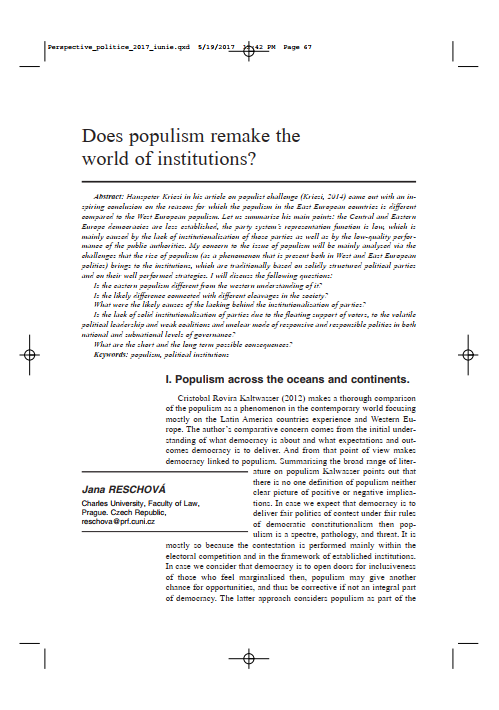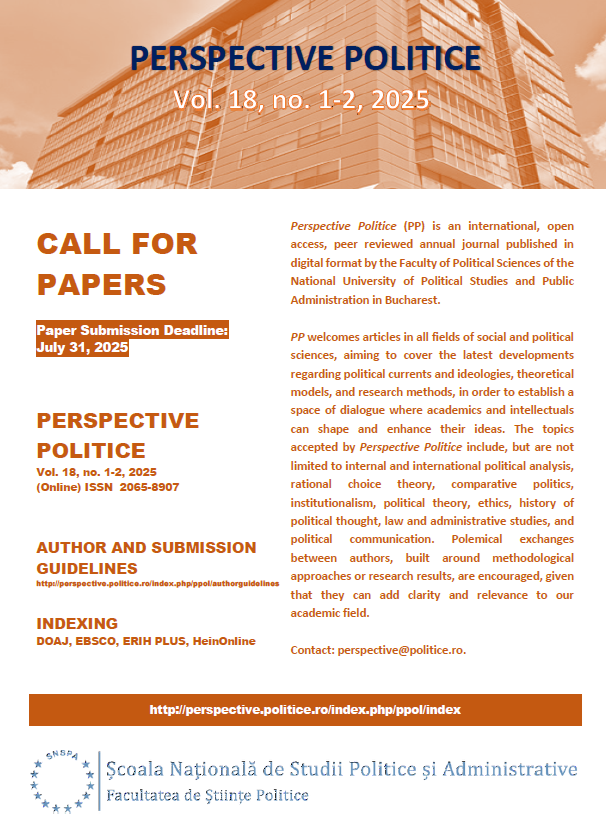Does populism remake the world of institutions?
Abstract
Hanspeter Kriesi in his article on populist challenge (Kriesi, 2014) came out with an inspiring conclusion on the reasons for which the populism in the East European countries is different compared to the West European populism. Let us summarise his main points: the Central and Eastern Europe democracies are less established, the party system’s representation function is low, which is mainly caused by the lack of institutionalisation of those parties as well as by the low-quality performance of the public authorities. My concern to the issue of populism will be mainly analysed via the challenges that the rise of populism (as a phenomenon that is present both in West and East European politics) brings to the institutions, which are traditionally based on solidly structured political parties and on their well performed strategies. I will discuss the following questions:
Is the eastern populism different from the western understanding of it?
Is the likely difference connected with different cleavages in the society?
What were the likely causes of the lacking behind the institutionalisation of parties?
Is the lack of solid institutionalisation of parties due to the floating support of voters, to the volatile
political leadership and weak coalitions and unclear mode of responsive and responsible politics in both
national and subnational levels of governance?
What are the short and the long term possible consequences?




